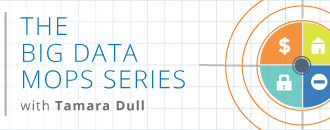In a time when nearly every aspect of our society is managed online, we must focus on ensuring the security of that digital information exchange. Practically the entire world is connected via the internet, and this introduces new risks and cyber threats. According to a 2016 study conducted by Report Linker, 69 percent of Americans believe cyber-attacks are becoming “more of a threat than they were 5 years ago.”
The shift to digital data storage and transmission was inevitable. It’s the most convenient way of connecting and sharing information around the globe. Convenience, however, does not always equate safety and security for sensitive data.
The average American lives a digital life. Think about the smart cars we drive, the phones we carry, and the apps we use on a daily basis. Each is connected to the internet, just like banking and shopping. Unprotected online connections represent opportunities for data breaches.
Protecting Information Has Changed
Before we did everything online, huge filing cabinets and storage rooms filled with physical records were the norm. Just think of the dedicated storage required to house millions of paper documentation. Tracking and managing these records was a monumental task but still had advantages.
Tampering with or otherwise damaging those records must, by geographic necessity, happen from inside that record storage room. Digital media does not have this problem when any computer system is a stone’s throw away.
Hacking can result in the theft of your data, which can be damaging to individuals as well as corporations. The other kind of data loss results from storage failure. This can be as a result of viruses and malware or simply from disk drive failure. A study on cyber security conducted by IDG Enterprise determined that 48 percent of data breaches are caused with malicious intent, while the rest are the result of system failure or human errors. Precautions can be taken to protect and even facilitate recovering that data however.
If you have a veritable library’s worth of information on that laptop of yours, you’d better be sure to back it up. Drive failure happens, and it is both inconvenient and costly. Depending on the severity and cause of the failure, varying amounts of data can still be recovered. This can be avoided by decentralizing the storage of your data by maintaining a backup to a separate drive or hosting additional storage in the cloud.
Practice data security
Proper data security practices must be observed in order to prevent damage, tampering, or theft of your information. Failure to properly implement all three can have disastrous consequences. If you employ antivirus software and/or have access to a company digital security expert, your data is much more likely to be safely protected.
Restricting access to your information requires accountability and no small amount of stubbornness. Many companies will demand that you hand your personally identifiable information over to them in order to gain access to their goods and services.
Once you relinquish control of your data, you have no guarantee that proper data management practices will be observed. Abstaining if possible can be the safest way of protecting your information.
Always read through user agreements and verify that you aren’t ‘giving away the farm,’ so to speak. If you give a credit card company access to your social security number and then they get hacked, you have no way of knowing who now has access to it. In our increasingly interconnected digital world, it is vital that we take steps to protect personally identifiable information.










